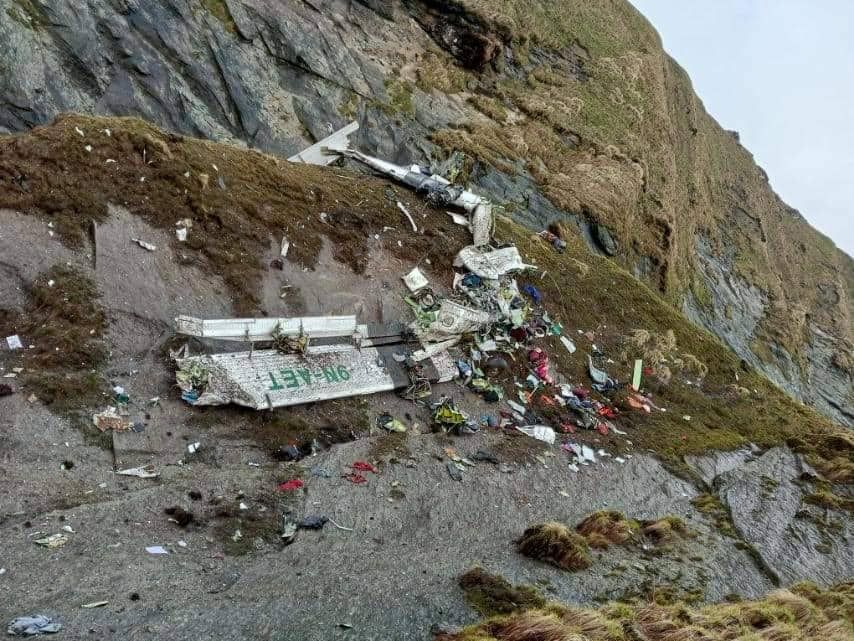KATHMANDU: The Nepal Army on Monday confirmed that the wreckage of a passenger plane which crashed on Sunday with 22 people on board, including four Indians, has been located in the Sanosware of Mustang District.
The army twin-engine Tara Air passenger plane had crashed in Sanosware, Thasang-2 in Mustang, Nepal Army spokesperson said.
“Crash site: Sanosware, Thasang-2, Mustang” he tweeted while sharing photographs of the wreckage.
Due to possible snowfall and inclement weather the team of the Nepal Army is still struggling to reach the site of the incident, the chief district officer of Mustang, Netra Prasad Sharma told ANI over the phone adding that the photographs were provided to Nepal Army by local “Yarshagumba” collectors.
“We have already dispatched a search team to the site. Locals of Thasang on Sunday had informed us about the fire they saw but our team was unable to reach the site. Now teams by both air and land are on their way,” the chief district officer Sharma told ANI.
Army spokesperson Narayan Silwal said that the Nepal Army was moving towards the site from the ground and air route.
The Tara Air’s 9 NAET twin-engine aircraft had crashed in Kowang village of the Mustang district hours after it went missing in the mountainous district after taking off from Pokhara city and bound for Jomsom. It lost contact at 9:55 am, after reaching the Lete area of Mustang, said the Airport authorities.
All helicopters deployed for the search of the crashed aircraft were called back to their bases on Sunday after snowfall in Mustang district, Premnath Thakur, General Manager of Tribhuvan International Airport said.
According to the information given by locals to the Nepal Army, the plane crashed at the mouth of the Lamche river under the landslide of Manapathi Himal. As per the police officials, the aircraft has been suspected to have crashed in the “Titi” area of Lete in Mustang District.
The Nepal Home Ministry has deployed two private helicopters from Mustang and Pokhara for the search for missing aircraft.
Mustang (from the Tibetan Muntan meaning “fertile plain”) the traditional region is largely dry and arid. The world’s deepest gorge that goes down three miles vertically between Dhaulagiri and Annapurna mountains runs through this district. (ANI)






